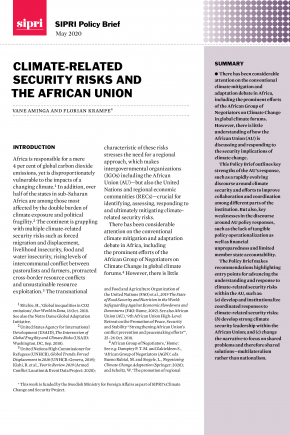Climate-related Security Risks and the African Union
There has been considerable attention on the conventional climate mitigation and adaptation debate in Africa, including the prominent efforts of the African Group of Negotiators on Climate Change in global climate forums. However, there is little understanding of how the African Union (AU) is discussing and responding to the security implications of climate change.
This Policy Brief outlines key strengths of the African Union’s response, such as a rapidly evolving discourse around climate security and efforts to improve collaboration and coordination among different parts of the institution. But also, key weaknesses in the discourse around AU policy responses, such as the lack of tangible policy operationalization as well as financial unpreparedness and limited member state accountability.
The Policy Brief makes recommendations highlighting entry points for advancing the understanding and response to climate-related security risks within the AU, such as: (a) develop and institutionalize coordinated responses to climate-related security risks, (b) develop strong climate security leadership within the African Union, and (c) change the narrative to focus on shared problems and therefore shared solutions—multilateralism rather than nationalism.


